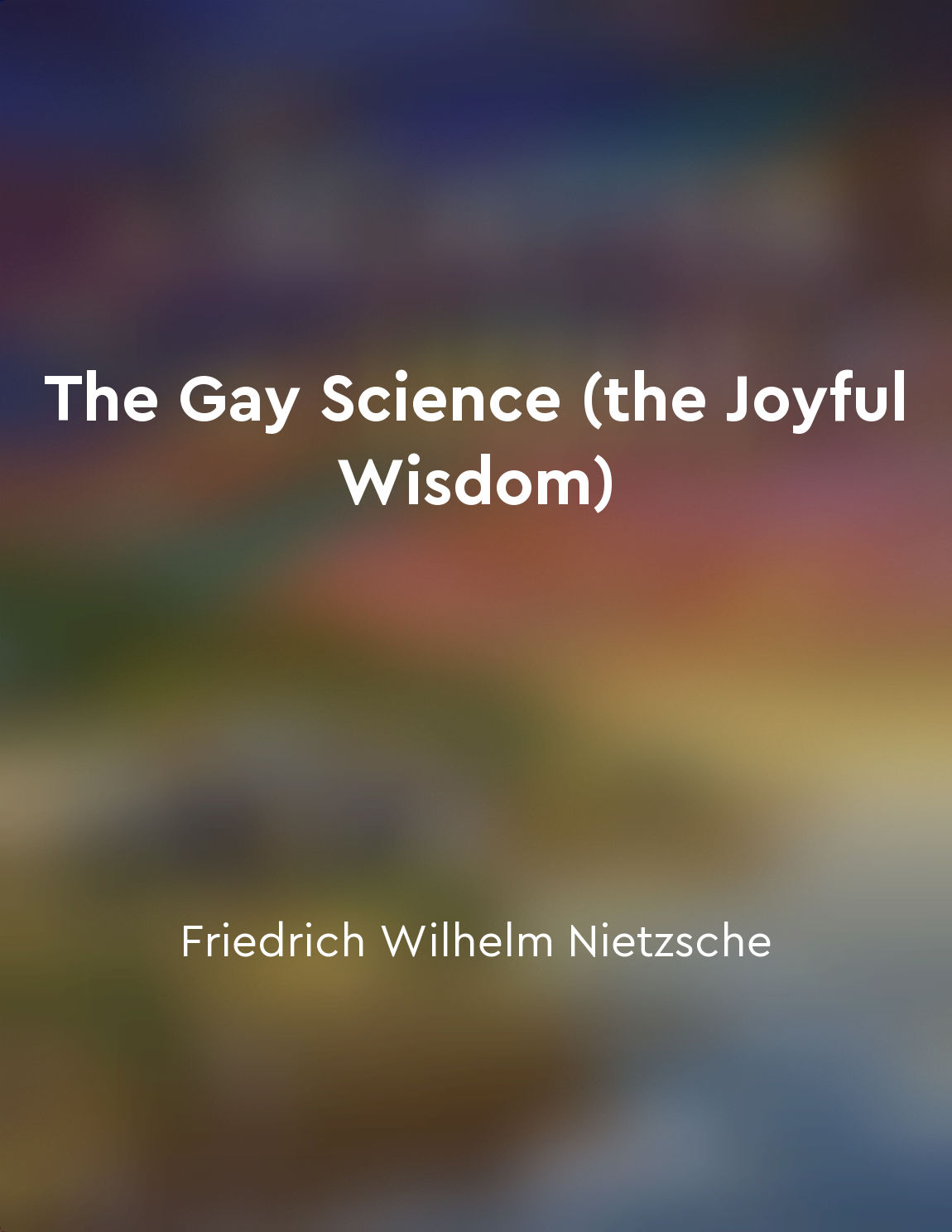Morality intertwined with concepts of power from "summary" of The Genealogy of Morals by Friedrich Wilhelm Nietzsche,Horace Barnett Samuel
The idea of morality being closely connected to power is a fundamental concept that is deeply explored in 'The Genealogy of Morals'. Nietzsche delves into the intricate relationship between morality and power, emphasizing how they are intertwined and often inseparable. He argues that morality is not simply a set of universal values or principles, but rather a tool used by those in power to assert dominance and control over others. Throughout the book, Nietzsche challenges traditional notions of morality, suggesting that it is not derived from a higher authority or divine source, but rather constructed by those who hold power in society. He highlights how morality is used as a means of social control, shaping the behaviors and beliefs of individuals to serve the interests of the powerful. Nietzsche also explores the idea of 'slave morality' versus 'master morality', suggesting that the values and beliefs of the oppressed are often in direct opposition to those of the ruling class. He argues that slave morality is born out of resentment and a desire for revenge against the powerful, leading to a system of values that condemns strength and power in favor of meekness and humility. Furthermore, Nietzsche discusses how morality can be a form of deception, used by the powerful to maintain their dominance and influence over others. He suggests that moral codes and ethical principles are often manipulated to justify acts of violence, oppression, and exploitation.- Nietzsche's exploration of the relationship between morality and power in 'The Genealogy of Morals' challenges readers to question the foundations of their beliefs and consider how morality can be used as a tool for control and domination.
Similar Posts

Establishing boundaries
Establishing boundaries is a crucial aspect of protecting yourself from manipulation and exploitation. When you set clear bound...

Nurture your creative spirit
The creative spirit within you is like a flame that must be tended and nurtured to keep burning bright. It is not enough to sim...
The distribution of power reflects societal hierarchies and inequalities
The distribution of power is a reflection of the societal hierarchies and inequalities that exist within a community. It is not...
Power can be a force for positive change
Power often carries a negative connotation, associated with corruption, abuse, and exploitation. However, it is important to re...
Social change comes through moralizing and sanctification
The process of social change is complex and multifaceted, requiring a combination of factors to be successful. One important as...
Slave morality promotes weakness
In the realm of morality, a significant distinction is drawn between what is known as "master morality" and "slave morality." M...
The pursuit of power can lead to isolation and alienation
The desire for power can be all-consuming. It can consume a person from the inside out, leaving them isolated and alienated fro...

